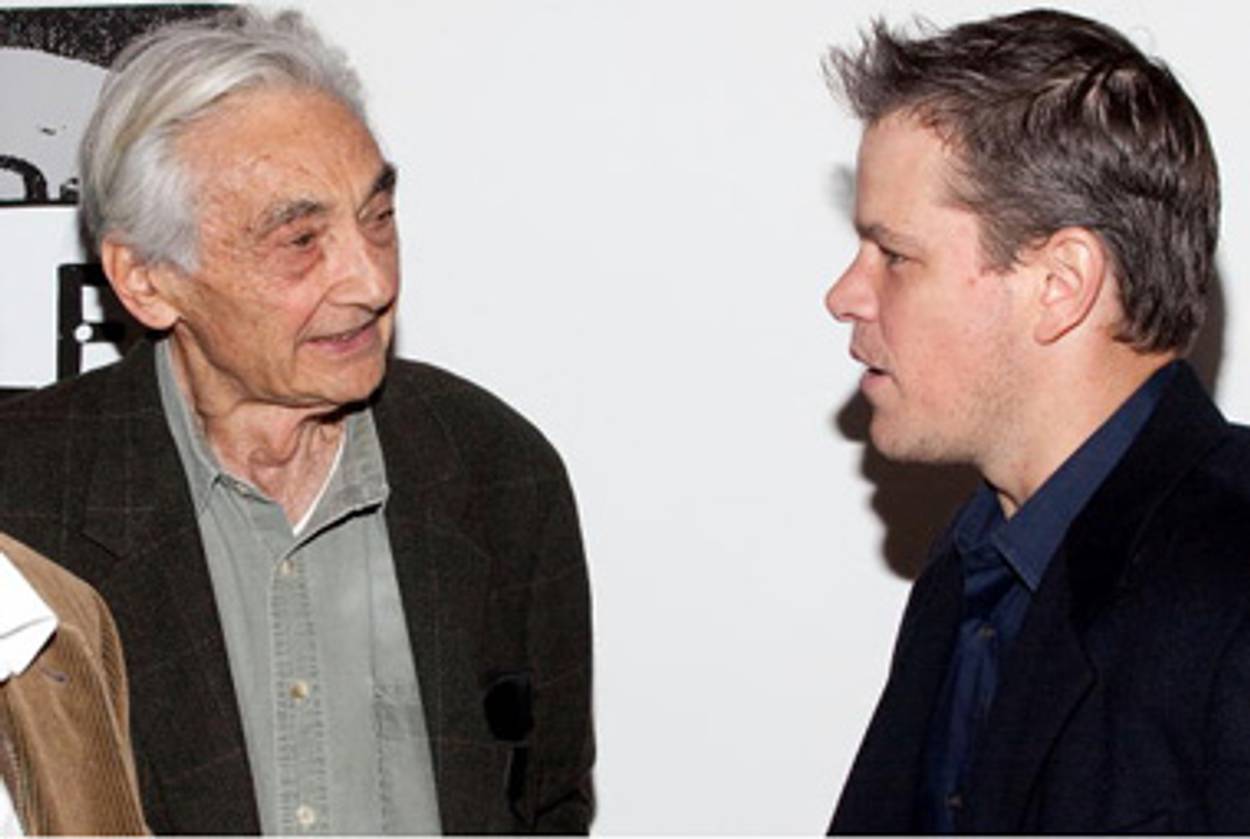Appreciating Howard Zinn
Problems and all, ‘A People’s History’ has made us a better people




I have been struggling to say something about Howard Zinn, the Jewish-American historian—he wrote the super-popular A People’s History of the United States—who died earlier this week at 87. Yes, the book is immensely popular. (It has sold over one million copies. And it is a several-hundred-page-long history book!) But what Zinn I read (different sections of A People’s History) I couldn’t stand, and not (or not only) for reasons of personal, idiosyncratic taste.
Zinn explicitly sought to write a history from the perspective of “the people,” rather than the elite—certainly an admirable mission, and one that broadly defines much important historical writing of the past 50 years. But too often, I felt, Zinn condescended to his crude, glorious-savage conception of “the people” when he wasn’t misrepresenting them entirely. And that gleeful, sophomoric self-righteousness! Patting himself on the back for noticing that the Europeans who arrived in North America were (among other things—though for Zinn, there were no other things) genocidal colonizers! (The problem is not the pointing it out, it is the self-congratulation.)) Ultimately, his worldview failed to acknowledge the legitimacy, or even the existence, of alternate worldviews. It was immature.
Zinn’s death drew attention to a take-down Michael Kazin published a few years ago in Dissent. In addition to lodging several of my complaints, Kazin—an accomplished historian, writing from and for the left—showed that in many cases, Zinn’s history was more than lopsided, even beyond what it should have been: it was flat-out incomplete.
At the same time, can one really say that the world would be better if he had never written his magnum opus? One cannot.
As blogger Matthew Yglesias noted, Zinn seemed to know that his book’s main utility lay in the notions in put in the heads of young people for the first time: that the victors write the history books; that there is frequently an economic and class dynamic even to conflicts that seem purely social; that as far in a good direction as the United States has traveled in its history, there is still much room for improvement in the liberty category, especially if liberty is properly defined (blacks were and are in need of greater freedom, but so are folks without health insurance.) If Zinn’s book was sophomoric, that’s because that is how you get through to sophomores; maturity can come later. The American citizen must outgrow Zinn, but not before he grows into Zinn.
Related: Howard Zinn’s History Lessons [Dissent]
A People’s History of the United States [Matthew Yglesias]
Marc Tracy is a staff writer at The New Republic, and was previously a staff writer at Tablet. He tweets @marcatracy.